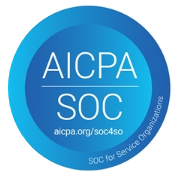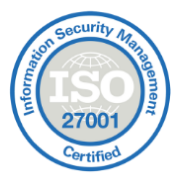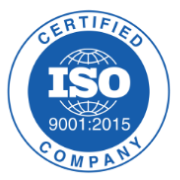By executing Learning Management Systems, businesses can reduce the amount of managerial work they need to do, allowing them to manage several assignments on a single platform. For example, they can generate training resources for their teams and track their performance. In addition, to improve individuals’ learning experience and establish themselves as an essential component of a broader environment, companies are assimilating beneficial LMS tools into their training sessions.
What is LMS Integration?
Integrating an LMS comprises integrating several corporate applications into an integrated platform to design a flawless and tailored user experience for team members. With LMS integrations, it is possible to complete several assignments simultaneously by integrating several previously used technologies within the association into a single digital ecosystem. For example, unifying a video conferencing tool into an LMS allows for online conferences with employees and customers. With this attitude, you can add several beneficial tools to a customizable LMS.
Learn how to create and publish your first course with Paradiso CourseCart, for free Trial!
Why Are LMS Integrations Essential?
To enhance all aspects of an eLearning organization, such as accessing support for virtual training materials, regulating course content, cooperating with other processes, and assimilating with additional facilities, is essential. The challenge is to detect a platform that provides all vital services without irresistible apprentices by redirecting them to other websites.
In order to enhance the efficiency of the L&D team and improve the users’ experience, it is advisable to make a list of creative assets. Then, after selecting the essential features, compare several possibilities to decide which integration will offer the best value for money. Lastly, combine the chosen elements with your LMS to improve functionality and raise ROI.
Let’s Discuss the Top 10 LMS Integrations Streamlining Your Training Business.
eCommerce
If you want to vend your virtual training materials, utilizing eCommerce LMS integrations is significant. These incorporations will support you with everything from monitoring sales and conversions to preparing payments, which will eventually help you to generate revenues and develop your brand. In addition, some organizations also select to vend more innovative course content to potential clients, such as endorsement courses that allow them to produce new skills while promoting your brand. PayPal, Shopify, and Stripe are some popular eCommerce LMS incorporations you can utilize to accomplish this.
CMS
To increase the return on investment (ROI) of virtual training, it’s crucial to preserve skills in arranging, regulating, and reviewing the current course content. Integrating a content management system (CMS) with a learning management system (LMS) allows the development and distribution of courses utilizing single software, confirming equivalence across all platforms. Moreover, refining current content can help expand the budget, and integrating features in a single site provides easy access at a suitable time.
Collaboration Tools
Collaboration is essential for dynamic virtual training programs, and collaboration LMS integrations provide several tools to simplify it. For instance, delivered calendars and project management platforms enable developers and managers to work together on refining and designing virtual training materials. This type of collaboration LMS integration saves time and resources and stimulates open interaction, confirming everyone is on the same page. In addition, the acumens achieved from these collaborations can help detect areas that need progress and notify future action plans. Video conferencing tools can also be preferred for collaboration purposes through LMS integrations.
Social Media
Assimilating social media with your LMS can have several advantages, from virtual discussion platforms to online training materials. Social media integration can also support you in tracking informal virtual training programs and enable instant reviews and support. By integrating wikis and online articles into your virtual training approach, you can improve the user experience. Furthermore, you can organize online surveys and live chats and build social media groups to bring everyone into the L&D fold.
Customer Relationship Management (CRM)
Incorporating your LMS with Customer Relationship Management (CRM) is a valuable way to track learners’ experiences. Doing so allows you to proficiently regulate and measure dispersed user data to support informed decision-making. Content Management Systems (CMS) are generally used in eLearning and training businesses. Popular CRM software possibilities comprise Salesforce, Hubspot CRM, SAP CRM, and Webhooks. Among these, Salesforce is a top-rated North American company providing an advanced CRM that can unify clients, associates, and team members. Additionally, it can suggest tailored virtual training sessions for employees based on your business preferences and needs.
Single Sign-On (SSO)
Integrating your LMS with different tools can bring various advantages to your business. One of these tools is Single Sign-On (SSO), which allows you to centralize your authentication platform and log in to multiple digital platforms and training portals using the same login credentials. SSO helps you save time, protect your data from potential threats, and avoid password fatigue, which can ultimately reduce IT costs. SSO integration is accessible in widely used e-commerce platforms such as WooCommerce and Shopify, making your work much more manageable. Renowned organizations employ SSO LMS integrations like AWS Single Sign-On and Microsoft Azure Directory.
Video Conferencing
While video conferences have existed for some time, their significance has grown significantly during the pandemic. They facilitate daily connections between millions of individuals and help businesses continue their operations despite the unconventional conditions caused by Covid-19. Therefore, it is advantageous to consider integrating video conferencing with your LMS. Such integration enables live events, hosts, and online meetings and offers various other benefits.
Human Resource Information System (HRIS)
HRIS is a web-based tool that manages and maintains all employee information and other data related to business processing. Integrating your LMS with HRIS can assist your HR department in facilitating seamless interactions with employees, eliminating the need for additional paperwork to maintain records. In addition, by implementing HRIS-LMS integration in your business, you can automate various HR-related processes, saving time and money that would otherwise be invested in training and development activities.
Google Workspace
Google Workspace, or G Suite, is a collection of web applications created by Google for individuals working in organizations. It consists of various communication and collaboration tools that are commonly utilized worldwide. Google Workspace includes several productivity tools that can enhance employees’ efficiency in completing tasks. For example, it enables document sharing through Google Docs, messaging through Chat, video conferencing via Meet, and more. Integrating your LMS with Google Workspace can allow your employees to use familiar tools, increasing their productivity by sharing appropriate content with relevant individuals and collaborating effectively to achieve business objectives.
Enterprise Resource Planning (ERP)
ERP, or enterprise resource planning, is a software system that manages an organization’s daily business functions, including supply chain operations, procurement, accounting, project management, and HR activities. Integrating ERP with your LMS can assist in streamlining your organization’s internal processes, managing training programs for employees and customers, and controlling budgets for various business activities. This integration can help you discover efficient ways to manage everyday business processes and identify optimal solutions to accelerate workflow.
Upgrade Your Learning Experience with Paradiso LMS
If your organization’s current LMS doesn’t integrate with the powerful LMS integrations mentioned, it may be time to switch to a new platform. Traditional learning platforms are often cumbersome, outdated, and inefficient, making it challenging for team members to streamline or automate tasks. Fortunately, Paradiso LMS is a modern learning platform designed for enterprise organizations that integrates with all the LMS integrations listed (with more integrations being added shortly. Stop using your old LMS, tryout Paradiso LMS personalized to:
- Quickly and effectively onboard new hires
- Automate HR onboarding processes
- Engage with your team to provide meaningful learning experiences
- Consolidate all your corporate information in a single tool
- Track and measure employee training progress
- Invite, assign, and assess your employees’ skills.
Conclusion
To efficiently manage your business processes, it’s crucial to have an LMS that supports various integrations. With Paradiso LMS, you can seamlessly train your employees and customers effectively. In addition, our online platform offers several useful external tools on a single platform. Contact us today for more information on our solution or to set up a free demo with our team to learn how our product works.


















